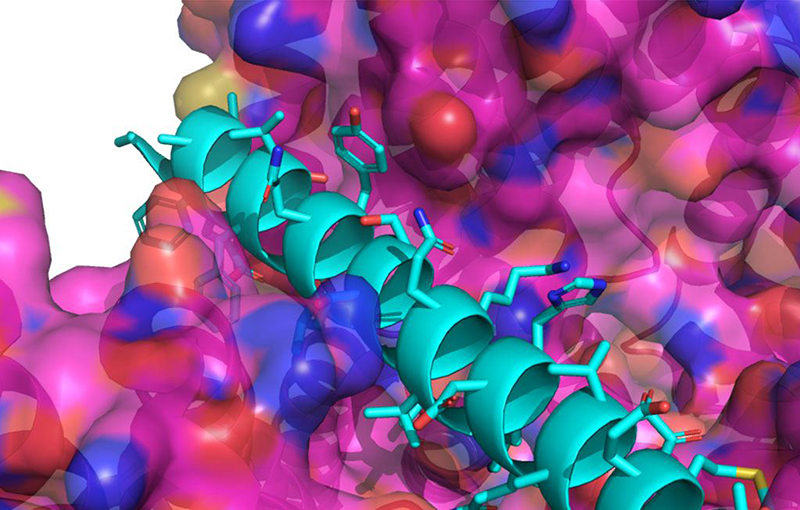Case study: PolyProx Therapeutics
In April 2019 PolyProx Therapeutics announced it had raised an impressively large seed round of £3.4 million.
A spin-out of the Department of Pharmacology, PolyProx Therapeutics is based on over a decade of research and intellectual property from founder Professor Laura Itzhaki’s lab – as well as six years of support from Cambridge Enterprise.
PolyProx Therapeutics exists to develop a new class of drugs, called Polyproxin® molecules. The molecules selectively target disease-causing proteins inside tumour cells and trigger their natural degradation mechanism, halting tumour growth. The technology behind this approach uses protein ‘scaffolds’ to hold – and link together – an element targeting the cancer-causing protein at one end and a degradation trigger at the other. It’s an approach that has the potential to hit key drivers of tumour growth in lung, colorectal, pancreatic and liver cancers that cannot be targeted with current technologies.
Itzhaki first met with Cambridge Enterprise’s Technology Transfer team in 2013. Over the next four years they discussed several possible translational projects, including the one that became the basis of the PolyProx IP, which captures a platform to make Polyproxin® molecules.
In 2017 Cambridge Enterprise made the first two of what would ultimately be 15 patent filings and arranged initial meetings with venture capitalists to gather feedback. The response was positive, and the following year the Seed Funds team awarded PolyProx a £20,000 Pathfinder loan to hire a consultant to help frame the value proposition, articulate the commercial strategy and build the pitch.
Activity intensified in 2018 as the Technology Transfer and Seed Funds teams worked to support PolyProx’s creation, developed its business plan, identified an executive chair, negotiated the legal agreements and set up revenue-sharing arrangements with the charitable funders that had supported Itzhaki’s lab.
“We worked very intensively together, including almost daily meetings over a period of several weeks during patent filings and investor pitches,” said Itzhaki. “I can honestly say that those weeks were some of the most enjoyable, exciting and intellectually stimulating of my 30-year research career—to the extent that in the following weeks I missed our daily interaction!”We worked very intensively together, including almost daily meetings over a period of several weeks during patent filings and investor pitches. I can honestly say that those weeks were some of the most enjoyable, exciting and intellectually stimulating of my 30-year research career—to the extent that in the following weeks I missed our daily interaction!”
The financing, which was co-led by Cambridge Enterprise, sister organisation Cambridge Innovation Capital (CIC) and RT Capital, supports research operations to validate the technology across a range of tumour targets over the next two years.
Nine months after the deal closed, PolyProx Therapeutics is settled in its own labs at the Babraham Research Campus with an experienced science and management team including serial Cambridge biotech entrepreneurs Andy Sandham as executive chair and Kevin Moulder as chief operating officer. They are building libraries of Polyproxin® molecules and generating data. A member of the Seed Funds team continues to provide support as part of the company’s board.




